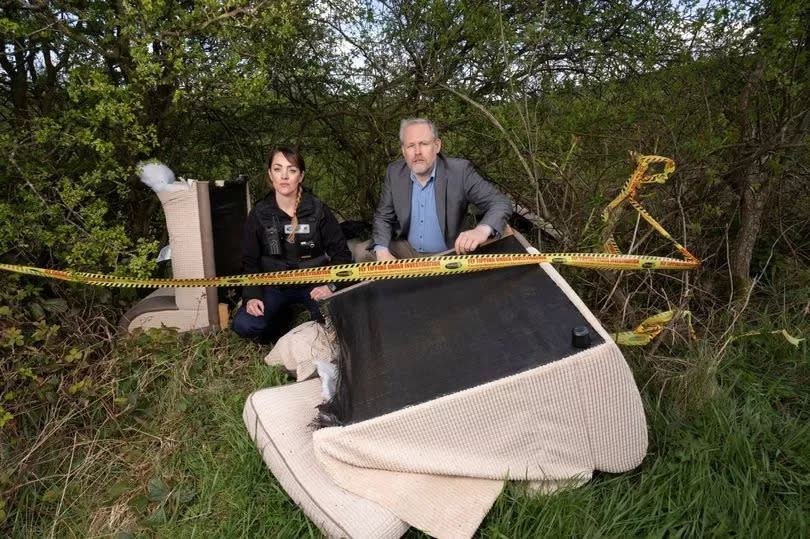Fly-tippers in County Durham to be hit with £1,000 fine as council introduces tougher penalties

People responsible for fly-tipping, littering, graffiti and other environmental offences in County Durham will soon face higher fixed penalty notice (FPN) fines.
Durham County Council’s move to introduce tougher penalties follows its decision to scrap early payment discounts last summer . It means the maximum FPN for fly-tipping will soar from £400 to £1,000, with littering FPNs rising from £150 to £250 and graffiti and fly-posting FPNs from £100 to £250.
The maximum FPN for household duty of care offences, which relate to people failing to arrange responsible disposal of their waste, will increase from £300 to £400. A new £500 FPN will be introduced for any repeat littering, graffiti or fly-posting offences, alongside a £600 FPN for repeat household duty of care offences.
READ MORE: Fly-tipper fined after shocking mound of waste dumped in County Durham
Keep up to date with all the latest local news from County Durham with our free newsletter
Cllr Mark Wilkes, Durham County Council’s Cabinet member for neighbourhoods and climate change, said: “We’ve really cracked down on environmental offences – issuing more fines and taking more perpetrators to court than ever before.
“And we’re seeing strong results. In the last couple of years, we’ve seen the number of fly-tipping cases in the county fall to an all-time low and the rate is now at around half the national average.
“It’s no coincidence that this has come at a time when we’ve stepped up enforcement activity and taken a really tough stance in terms of how we deal with these offences. And we’re about to get even tougher.
“Last summer – around the time we scrapped the early payment discounts actually – the government announced it was giving local councils the power to increase maximum FPN levels and we said at the time we were very much interested in exploring it.
“Now, having weighed up the pros and cons around the greater deterrent higher fines can give us versus the potential impact on FPN payment rates, we’ve decided that that is exactly what we are going to do.
“We want to reinforce the message that fly-tipping and other environmental offences will not be tolerated here and we know local people want to see those responsible for these kinds of offences face much tougher penalties. Our communities tell us that all the time.
“Of course, we will still try to educate and engage wherever possible, but it’s important to back that up with tough enforcement. The new fly-tipping fine, as well as the new fines for repeat offences will all be set at the maximum sum permitted by national regulations.
“It’s also important for people to be aware that we can only spend the money we receive from these fines on related activities, such as environmental education and communication campaigns and enforcement.”
The new, higher FPNs, will come into effect from 1 May 2024.
There are lots of ways to get rid of household waste responsibly, from bulky waste collections to disposal at one of the county’s Household Waste Recycling Centres. To find out more about how the council tackles environmental issues, and how waste can be disposed of responsibly, visit www.durham.gov.uk/environment.

 Yahoo News
Yahoo News 
